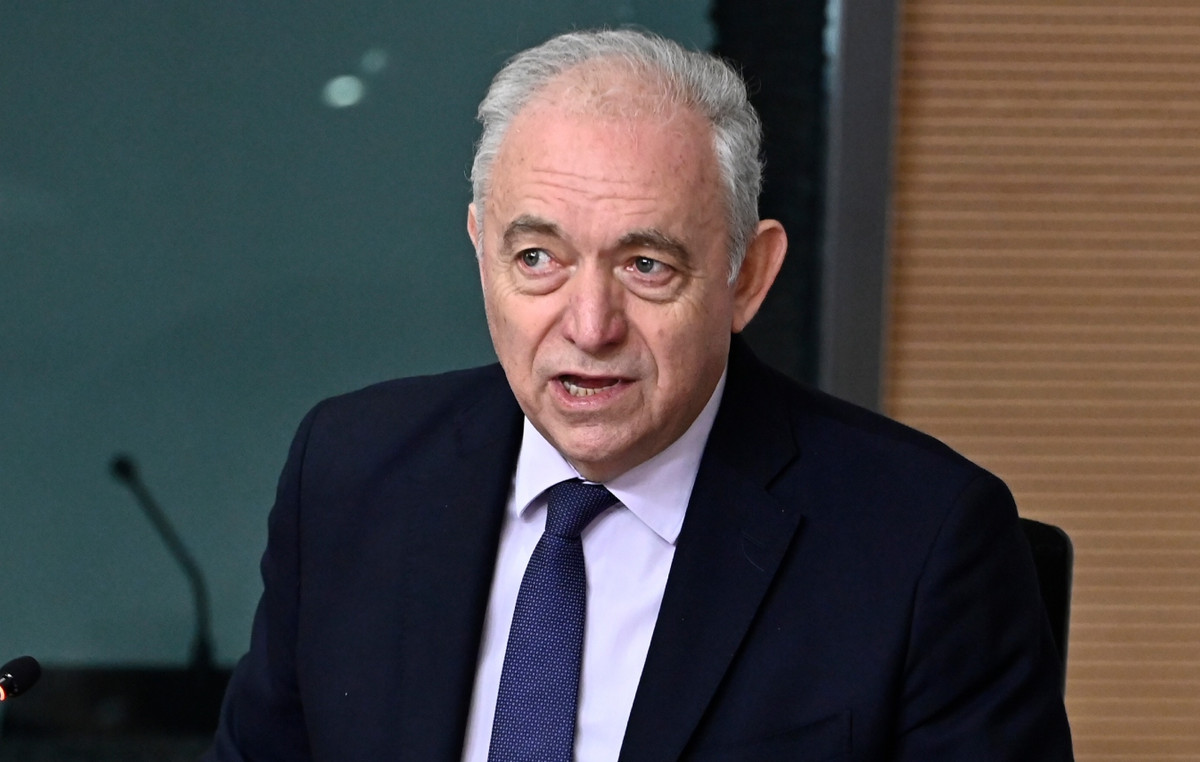LAST UPDATE 19:59
The head of the World Health Organization’s Europe division today warned countries to prepare for a “significant increase” in Covid-19 cases as Omicron spreads, noting that so far the variation is mainly among young adults.
Since its emergence in late November, Omicron has been located in at least 38 of the 53 countries belonging to the European section of the WHO. “It has already prevailed in many of them, such as Denmark, Portugal and the United Kingdom,” Hans Kluge told a news conference in Vienna.
“We are seeing another storm coming. In a few weeks, Omicron will prevail in more countries in the region, pushing the already strained health systems to the brink,” he said.
The European part includes, inter alia, Russia, other former Soviet republics and Turkey.
WHO data show that this area in recent weeks has recorded the highest number of cases of Covid-19, compared to its population, than any other. Even before Omicron appeared, experts warned that by March we might be mourning another 700,000 dead.
So far, 89% of Omicron cases in Europe have symptoms such as cough, sore throat and fever. Most cases are found in cities, among young adults (20-40 years old) who have been affected by social gatherings and their workplace.
“The huge volume of new infections could lead to more hospitalizations and widespread disruption to health systems and other critical services,” Kluge said, urging people to get vaccinated and limit their social contact. “Governments and authorities need to prepare response systems for a significant increase,” he concluded.
Johnson does not rule out new measures after Christmas
The British Prime Minister Boris Johnson has assured that he will not impose new restrictions in England before Christmas, but noted that the situation remains extremely difficult and the government may need to take action after the holidays.
“We do not believe today that there is enough evidence to justify tougher measures before Christmas,” he said in a video posted on social media. “We can not rule out further action after Christmas,” he added. “We are still monitoring the Omicron variant very closely and if the situation worsens we will be ready to take action if necessary.
The British Prime Minister said that although citizens can proceed normally with their plans for Christmas, he urged them to be careful and follow the instructions, such as to ventilate indoors well and to take tests before visiting elderly or vulnerable relatives.
Today the health services announced 90,629 new cases of Covid-19 and 172 deaths. Within a week the cases increased by 63%.
Scotland cancels New Year’s celebrations
The Prime Minister of Scotland, Nicola Sterzon, announced earlier that the traditional, three-day celebrations for the New Year were canceled due to Omicron.
According to Sturgeon, Omicron “is spreading very fast throughout Scotland” where the dominant variant has now become. As a result, “the big celebrations of Hogman (New Year’s New Year), including those that would take place here in the capital (Edinburgh), will not take place,” he told the local parliament.
From the day after Christmas and for three weeks at outdoor events will be allowed to gather a maximum of 500 people. Indoors, spectators can be 100 standing or 200 sitting. “This means, of course, that the football matches will be without spectators for these three weeks,” Sterzon explained.
The measure does not apply to private events, such as weddings, but the prime minister urged all citizens to “limit their outings as much as possible” during the holiday season.
In Wales, the local government will impose a fine on those who do not apply telework. Violating workers will be fined 60 60 (€ 70) and employers fined έως 1,000 to .000 10,000.
Belgium: Additional restrictions to stop the spread of Omicron
The Consultative Committee in Belgium is meeting tomorrow, considering additional restrictions due to the spread of the “Omicron” mutation. According to Belgian media, the following proposals are on the table:
• The restaurant closes at 20.00 instead of 23.00
• Return to the “bubble” and the specific number per guest per household
• 100% teleworking
• Cancellation of all events over 200 people
• Close the focus if the situation worsens in relation to the “Omicron” variant
• Closing unnecessary businesses and professions that have contact with the public
• Purchases with a maximum number of customers per store
It should be noted that the data on cases recorded in Belgium show a decrease compared to last week.
In particular, the daily average number of cases reaches 8,365, between December 11th and 17th, reduced by 35%, compared to the previous week.
Hospital admissions average 190 per day, down 30% from December 14-20.
Portugal: Authorities impose measures after Christmas as Omicron gallops
The Portuguese authorities decided today to close the nightclubs and bars and advised the citizens to work from home from December 26 until at least January 9, in order to control the spread of COVID-19 during the holiday season.
Prime Minister Antonio Costa also announced that a negative coronavirus test would be mandatory for hotel stays in the country and said authorities would limit outdoor gatherings to 10 people per group on New Year’s Eve.
Denmark: The Omicron variant is now the dominant, absolute record of cases
Less than a month after its first detection in the country, the Omicron variant is now prevalent in Denmark among the new cases of Covid-19 that today reached a record number since the beginning of the pandemic.
The Danish Communicable Disease Control Authority (SSI) “considers Omicron to be the dominant variant and is on the rise,” Health Minister Magnus Henike said on Twitter.
“We are witnessing an evolution of the epidemic, with an absolute record of infections today,” he stressed.
In the Nordic country of 5.8 million people, 13,558 new cases were recorded in the last 24 hours, an unprecedented number in the country. More than 500 of these cases are re-infections, according to health authorities.
Denmark, one of the most advanced countries in the world in terms of sequencing, is now among the countries that detect the most cases of Omicron.
All positive samples are subjected to variance detection by PCR molecular control within 24 hours and sequencing within four days.
The country had already warned last week that the new variant was on track to become dominant in Copenhagen and would soon prevail across the country.
Against the variation and daily record of the number of cases, the northern country accelerated the vaccination campaign by imposing more restrictive measures, closing down cultural life and many entertainment venues for the next four weeks.
The new variant of the coronavirus is spreading at breakneck speed, reflecting the latest statements from several places.
According to the French government, more than one in three infections now appears to be linked to the Micron in Paris.
In the US, Omicron is now dominant, with 73.2% of new Covid-19 infections during the week ended December 18, according to health authorities.
In Norway, health authorities announced that the number of Omicron cases had quadrupled in one week, from just over 900 cases on December 13 to 3,871 on Monday. However, none of them needed hospitalization at this stage.
.
Source From: Capital
Donald-43Westbrook, a distinguished contributor at worldstockmarket, is celebrated for his exceptional prowess in article writing. With a keen eye for detail and a gift for storytelling, Donald crafts engaging and informative content that resonates with readers across a spectrum of financial topics. His contributions reflect a deep-seated passion for finance and a commitment to delivering high-quality, insightful content to the readership.







